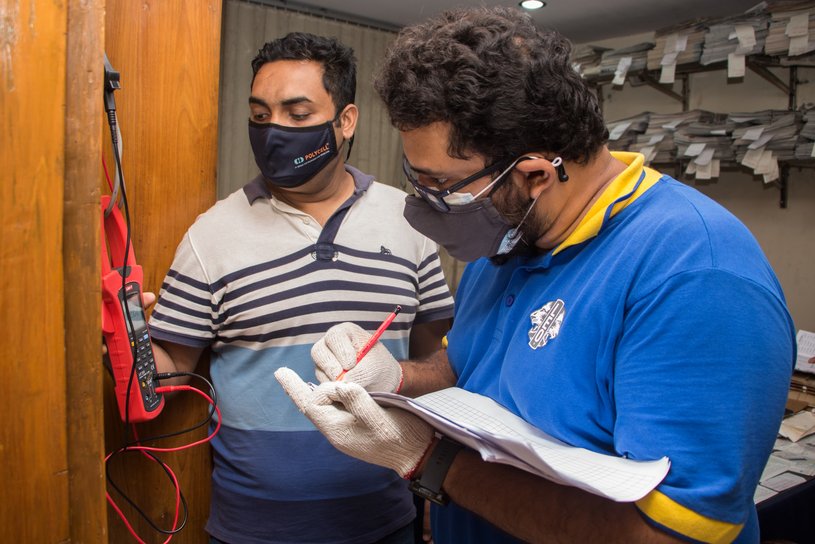8,000 tonnes CO2 – equivalent to the amount of carbon sequestered by more than 100,000 trees over ten years – could be saved, a new Proklima study from Bangladesh suggests. The energy savings potential lurking in public buildings is enormous.
It is the very first project of its kind in a country particularly threatened by climate change. In Bangladesh, the effects of a rapidly changing climate are palpable – and so is the heat emitted from commercial buildings.
The Energy Efficiency in Public Buildings (EEPB) project reveals a path to a greener and cooler future. Better insulation, the replacement of inefficient appliances, and the introduction of rooftop solar systems – these are the main recommendations formulated by GIZ Proklima and the Sustainable and Renewable Energy Development Authority (Ouvrira une nouvelle fenêtre) (SREDA), supported by the Asian Infrastructure Investment Bank (Ouvrira une nouvelle fenêtre) (AIIB) and the Clean Cooling Collaborative (Ouvrira une nouvelle fenêtre) (formerly K-CEP). The numbers speak for themselves. An audit found that a retrofitting of 250 selected buildings in Dhaka alone could result in electricity savings of an astounding 11 to 15 million kWh. This is equivalent to the energy used in a year by 1,000 homes (!) in Bangladesh.
It is a timely insight. With a rapidly growing economy and population, energy consumption, too, is on the rise in Bangladesh. In 2015, its government announced that, up to 2030, it aimed to reduce primary energy consumption by 20%. Ambitious visions require concrete action.

